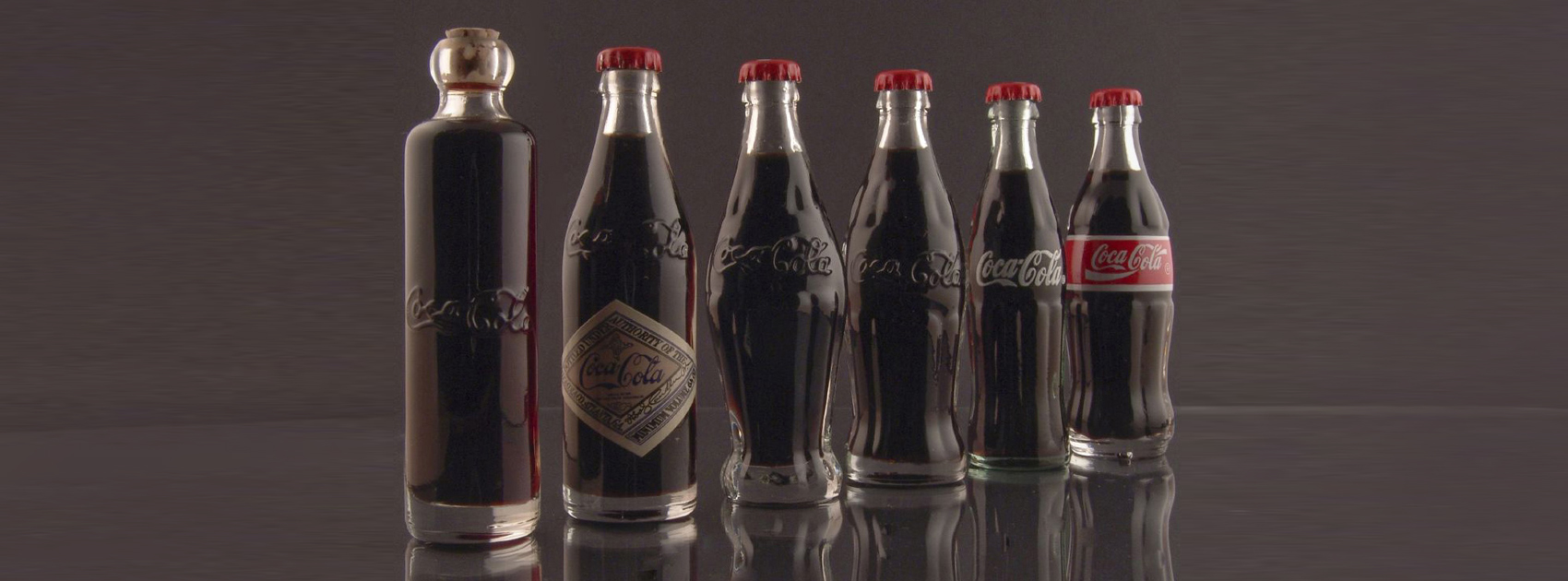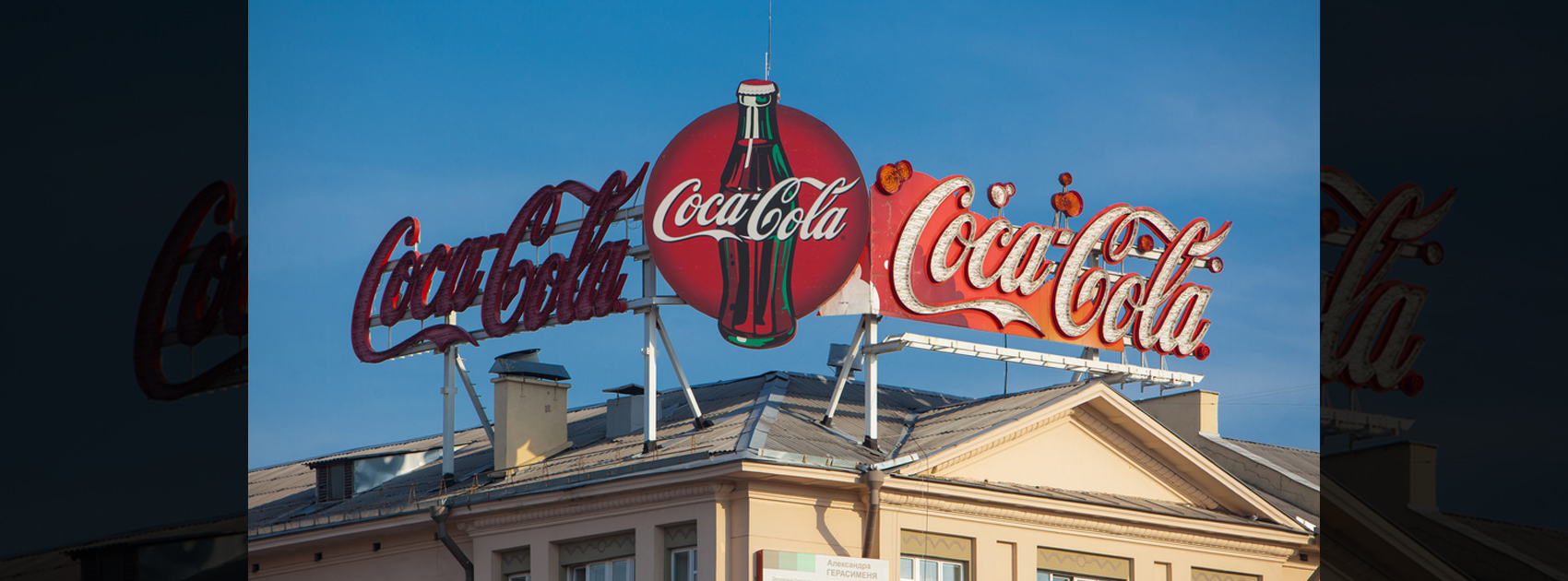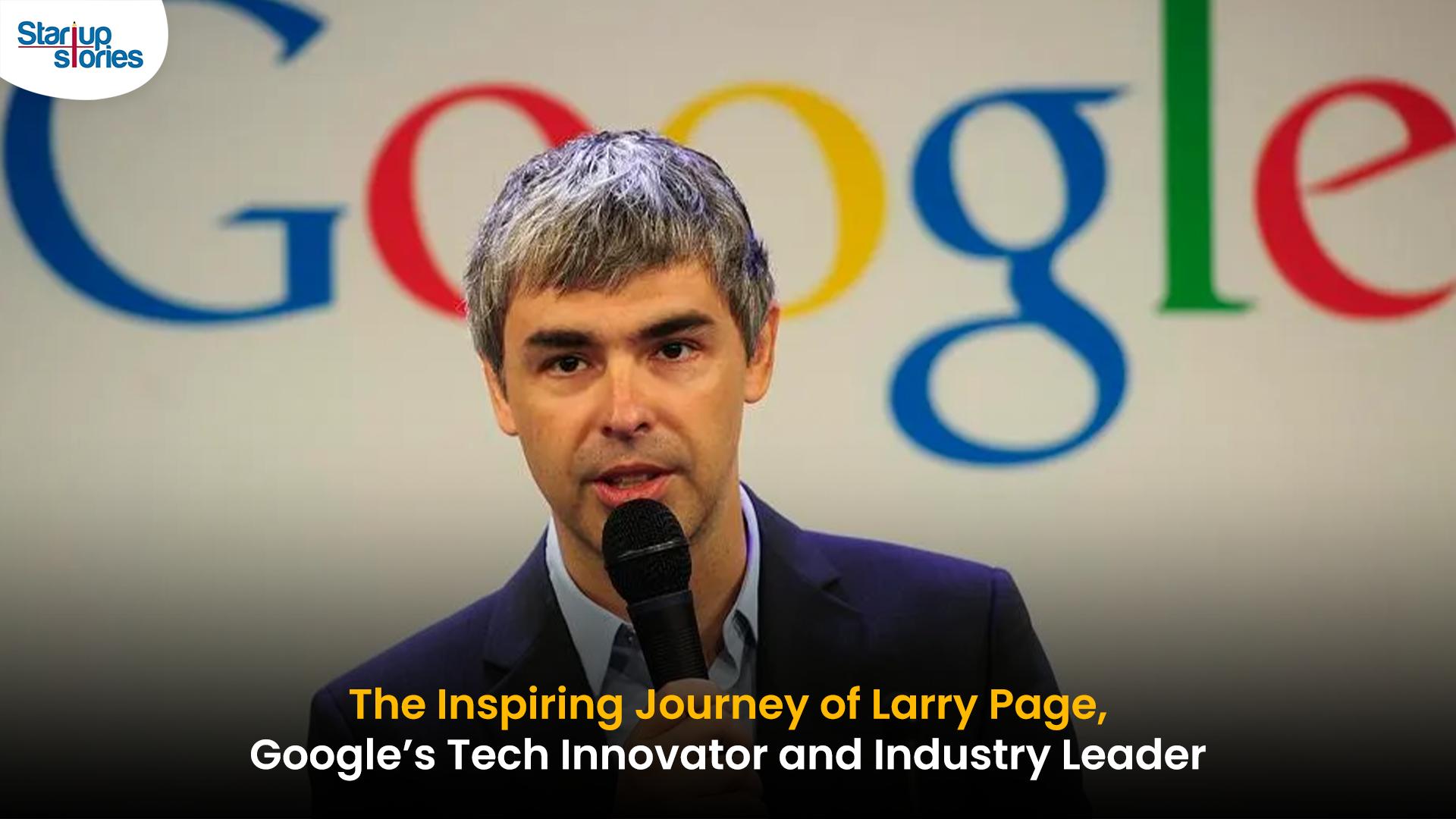Stories
Coca-Cola – The Refreshing Journey

Everyone in the world knows the name Coca-Cola. Invented 133 years ago in 1886, Coca-Cola, manufactured by The Coca-Cola Company, is a carbonated soft drink. The Coca-Cola Company is also one of the world’s most recognized and iconic brands with more than 3500 beverages, ranging from sodas and energy drinks to soy based drinks, under its name.
Coca-Cola was the invention of Confederate Colonel John Pemberton, who developed the drink as a substitute for his addiction to morphine. His invention was sold at soda fountains in various pharmacies, in the form of a patent medicine marketed as a nerve tonic.

After the death of John Pemberton, American businessman Asa Griggs Candler bought the rights to Coca-Cola from Pemberton’s family for just $ 300 in 1889 and established The Coca-Cola Company in Atlanta, Georgia in 1892. It was due to Candler’s incredible marketing strategies, that Coca-Cola was sold in every state of America by 1895. Candler was a great businessman ,but he took one wrong step when he sold the right to package Coca-Cola to bottlers, for a fee of one dollar. This led to the appearance of many knock off brands and people had trouble identifying the real product. To solve this problem, The Coca-Cola Company asked the bottlers to come up with a bottle which would help people distinguish Coca-Cola from other knockoffs. The first bottle made for Coca-Cola was designed as a cocoa bean. Since then the bottle design of Coca-Cola has gone through various changes, with Coke cans first being introduced to the public in 1955.
Coca-Cola remained popular well through the 20th century, with the Company owning almost 60 % of its market share in 1948. However, this number decreased in 1984 to 21.8 % because of a new competitor—Pepsi. This prompted The Coca-Cola Company to change its formula and it then introduced New Coke, the taste of which consumers preferred more than the old Coke and Pepsi. However, Coca-Cola faced backlash because of the public’s nostalgia for the old drink and the Company returned the old formula under the name Coca-Cola Classic. Coca-Cola Classic was changed back to Coca-Cola in 2011, after the New Coke formula was stopped from production. The Coca-Cola Company is popular for its acquisition of various brands all over the world, including Minute Maid, Indian cola brand Thumbs Up, Fuze Beverage and many others.

Despite its popularity, Coca-Cola has faced much criticism for its effect on health, environmental issues, animal testing and the nickname of the brand, “Coke.” The Company is also banned in countries like North Korea and Cuba because of its identity as an American brand.
Coca-Cola is the most popular brand of soft drinks, with its name being the second most popular word in the world after “OK.” With an annual revenue of $ 31.856 billion in 2018 and a net worth of $ 224.43 billion, Coca-Cola is still ruling the soft drink industry with its amazing drinks and incredible marketing campaigns.
Videos
T.N. Seshan: The Fearless Reformer Who Redefined Indian Democracy

T.N. Seshan’s name stands tall in India’s history as the man who transformed the nation’s electoral system with extraordinary courage and integrity. Born in 1932 in Kerala, Seshan grew up with values of discipline, education, and service to the nation — virtues that shaped his illustrious journey. From his early brilliance at Madras Christian College to his advanced studies in public administration at Harvard University, Seshan’s path reflected rare determination and intellect. Joining the Indian Administrative Service in 1955, he built a reputation as a no‑nonsense officer committed to efficiency and honesty, serving in key roles such as Secretary of Defense and overseeing vital national programs.
As the Chief Election Commissioner of India in 1990, T.N. Seshan sparked a new era of electoral integrity. In a system once marred by corruption, violence, and malpractice, Seshan brought order, fear, and respect through his groundbreaking reforms. He introduced voter ID cards, imposed strict spending limits on campaigns, and insisted on transparency at every level of the election process. Despite criticism from political circles that labeled him dictatorial, his relentless pursuit of fairness empowered every citizen to vote fearlessly. Under his leadership, the Election Commission became a symbol of strength and integrity in Indian democracy.
Seshan’s passing in November 2019 marked the end of an era, but his message continues to resonate across generations. Leaders from every corner of the country mourned the loss of the man who restored faith in free and fair elections. His enduring legacy reminds us that true leadership lies not in wielding power, but in serving people with honesty, courage, and conviction. T.N. Seshan’s life remains a timeless inspiration a reminder that democracy thrives only when its citizens are vigilant, responsible, and fearless.
Entrepreneur Stories
Indian Man Quits JPMorgan, Takes 70% Pay Cut to Launch $6 Million Startup

Leaving behind a high-paying job at JPMorgan, an Indian entrepreneur embraced a 70% salary cut to pursue true purpose and passion in the startup world. Disenchanted with what he described as a “robotic” corporate routine, he sought meaningful work that made a real impact. This pivotal decision marked the beginning of his new journey, one focused on value creation rather than titles and corporate perks.
Powered by resilience and fresh perspective, the entrepreneur launched his own startup, prioritizing innovation and hands-on solutions. The road was challenging, but his vision resonated with the market: the startup quickly gained traction and raised $6 million—an impressive acknowledgement of its potential in a competitive landscape. Every hard lesson from early setbacks and bootstrapping paid off in real customer growth and investor confidence.
Today, his journey stands as an inspiring example for professionals seeking authentic success outside the corporate grind. By trading comfort for creative freedom, he grew a venture that solves important problems, generates jobs, and builds wealth beyond just salary. For ambitious founders, his story highlights the power of risk-taking, adaptability, and relentless focus on impact in India’s thriving startup ecosystem.
Videos
Larry Page: The Visionary Co-Founder Behind Google’s Global Success

Larry Page is a visionary technology entrepreneur and co-founder of Google, one of the world’s most influential companies. Born in 1973 in Michigan, Page grew up surrounded by computer technology, which inspired his passion for innovation from an early age. He studied computer engineering at the University of Michigan and later pursued his PhD at Stanford University, where he developed the revolutionary PageRank algorithm with Sergey Brin. This technology fundamentally changed the way search engines rank websites, making Google the most accurate and popular search engine globally.
The journey of Larry Page and Google began in 1998 when they officially launched the search engine from a small garage. Leveraging their unique algorithm, Google quickly surpassed competitors due to its ability to deliver highly relevant search results, transforming internet search forever. Under Larry Page’s leadership as CEO, Google expanded beyond search to launch groundbreaking products including YouTube, Gmail, and Google Maps, turning it into a global tech powerhouse that shapes how we access and interact with information online.
Larry Page later became the CEO of Google’s parent company, Alphabet Inc., driving innovation and investment in next-generation technologies such as artificial intelligence, autonomous vehicles, and healthcare solutions. His visionary leadership and commitment to technological advancement have cemented his legacy as one of the most influential figures in the tech industry. Today, Larry Page remains a key influencer in shaping the future of technology and digital innovation worldwide.













iwin
November 5, 2025 at 12:58 pm
iwin – nền tảng game bài đổi thưởng uy tín, nơi bạn có thể thử vận may và tận hưởng nhiều tựa game hấp
站群程序
November 11, 2025 at 12:47 am
采用高效谷歌站群策略,快速提升网站在搜索引擎中的可见性与权重。谷歌站群
J88
November 11, 2025 at 2:58 am
Đến với J88, bạn sẽ được trải nghiệm dịch vụ cá cược chuyên nghiệp cùng hàng ngàn sự kiện khuyến mãi độc quyền.
站群程序
November 13, 2025 at 12:27 am
搭载智能站群程序,自动化搭建与管理,为SEO项目提供核心驱动力。站群程序
Kuwin
November 15, 2025 at 2:11 am
kuwin sở hữu kho game đa dạng từ slot đến trò chơi bài đổi thưởng, mang đến cho bạn những giây phút giải trí tuyệt vời.
MM88
November 17, 2025 at 7:38 am
Khám phá thế giới giải trí trực tuyến đỉnh cao tại MM88, nơi mang đến những trải nghiệm cá cược thể thao và casino sống động.
GO88
November 23, 2025 at 4:16 am
Tham gia cộng đồng game thủ tại Go88 để trải nghiệm các trò chơi bài, poker phổ biến nhất hiện nay.
MM88
November 30, 2025 at 7:15 am
Với giao diện mượt mà và ưu đãi hấp dẫn, MM88 là lựa chọn lý tưởng cho các tín đồ giải trí trực tuyến.
zet casino mobile app
December 20, 2025 at 10:33 am
Den besten Willkommnensbonus bietet mit Abstand das King Billy Casino auf
Dama N.V., denn dort muss der Bonus lediglich 30 Mal
umgesetzt werden und du bekommst einen Bonus bis zu 2.500€.
Der Willkommensbonus bei den Dama N.V. Casinos besteht
normalerweise aus einem Paket, das mehrere Einzahlungsboni umfasst.
Die Auszahlungslimits sind ebenfalls bei allen Dama N.V.
Spielotheken anders, sind aber meistens auch für Vielspieler interessant.
In Kontakt zu setzen, kannst du dich über die E-mail-Adresse an den Data
Protection Officer wenden. 125% bis zu 3.000€ + 100 Freispiele 111% bis zu 1.000€ + 100 Freispiele
Der 100 % Willkommensbonus bis zu 1 BTC + 180 Freispiele macht das Casino besonders für Krypto-Spieler attraktiv.
Spieler können sich einen 100 % Bonus bis zu
1.000 € + 100 Freispiele sichern und von regelmäßigen Reload-Angeboten profitieren. Die Plattform bietet über
4.000 Casinospiele und ermöglicht gleichzeitig Wetten auf zahlreiche Sportereignisse.
Die schnellen Auszahlungen und die Vielzahl an regelmäßigen Promotionen machen das Casino zu einer
beliebten Wahl für High Roller und Gelegenheitsspieler gleichermaßen. Du kannst in diesen nicht nur mit
deinem heimischen Computer spielen.
References:
https://online-spielhallen.de/plinko-casino-mobile-app-dein-weg-zum-digitalen-plinko-gluck/
bitcoin casinos vs traditional casinos
December 26, 2025 at 10:33 pm
His knowledge extends beyond casual observation; Zack Achman actively engages with
the dynamic casino industry, continually investigating the newest
trends, games, and strategies. He specialises in creating detailed gambling reviews,
informative “how to play” guides, and essential beginner tips.
With over ten years in the field, Achman has established himself as a trusted
expert in casino gaming. Look for evidence of a licence from a
credible authority (Curacao or Kahnawake), consistent player feedback
around fast payouts, and full public disclosure of bonus conditions.
As such, it may not appeal to all players,
but you don’t have to be an introvert to enjoy this
form of entertainment. At the same time, local regulatory bodies regulate
and authorise land-based casinos to provide services.
If you have read the previous section, you know that online gambling
in Australia is in a legal grey area. They are accessible from desktop or mobile devices and accept players 24/7.
References:
https://blackcoin.co/richard-casino-review/
bolsadeempregos.com.br
December 29, 2025 at 1:14 pm
online casino that accepts paypal
References:
bolsadeempregos.com.br